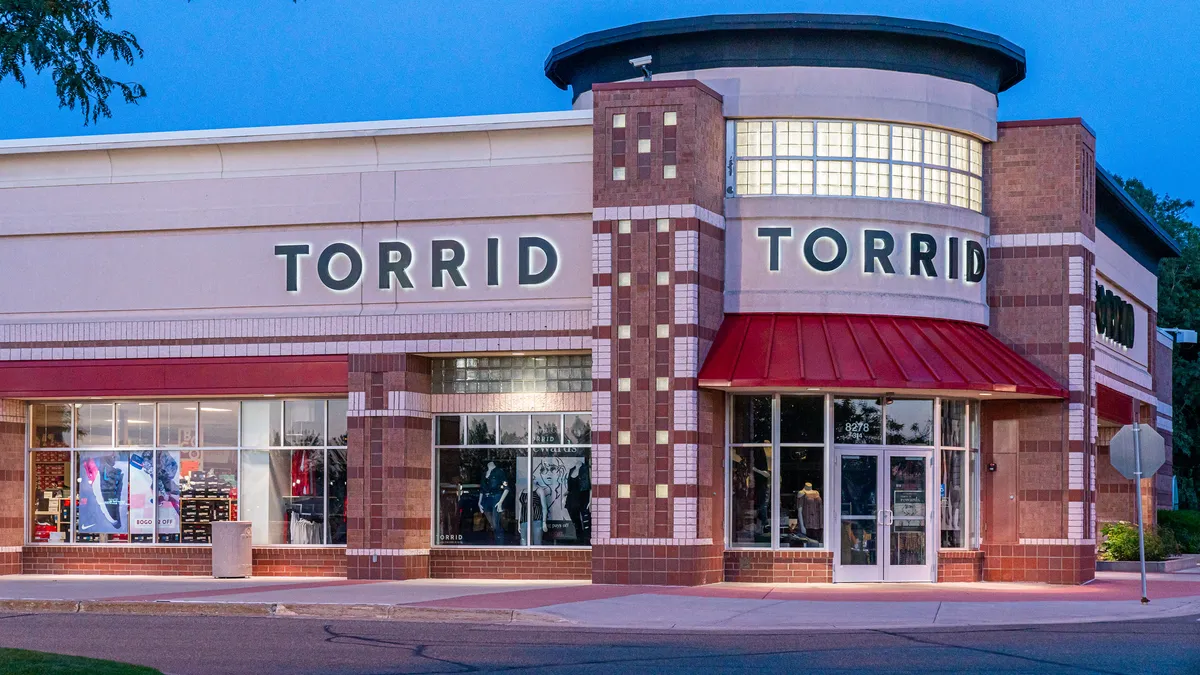Dive Brief:
-
Millennial-focused plus-size apparel retailer Torrid this week filed a Form S-1 registration statement with the Securities and Exchange Commission indicating plans for an initial public offering of its stock. Neither the number of shares to be offered nor their price range have been determined, according to a company press release.
-
If the company follows through, its ticker symbol would be CURV, per the filing. The proposal comes two years after withdrawing such a registration statement, which had been filed in 2017.
-
Even after going public, private equity owner Sycamore Partners would still "own a majority of the voting power of shares eligible to vote in the election of our directors," according to the filing.
Dive Insight:
It's not clear why Sycamore pulled the plug on Torrid's previous IPO plans. But it may have been that the brand decided to regroup amid slowing sales growth in the apparel market overall and disruption in the plus apparel market in particular.
That disruption to some extent involves a push for all apparel makers, retailers and designers to provide an inclusive range of sizes, rather than forcing an entire segment of fashion-forward consumers to seek clothing online only, in out-of-the-way departments or at niche stores.
Some brands, like Athleta, have moved in that direction, while others (including Sycamore-owned Loft) have retreated from it. In general, inclusive sizing hasn't reached the mass market, and marketing to this customer is often condescending and passive-aggressive, according to research from retail analytics platform Edited.
That leaves room in the market for specialists with the right merchandising and marketing. Two decade-old Torrid, which says it's focused on "the 25- to 40-year old woman who is curvy and wears sizes 10 to 30," has retained a following. The company enlisted comedian Nicole Byer, "known for being vivacious and unapologetic," for a recent casting call campaign, and regularly turns to influencers for its social media messaging.
The latter may be especially effective. In the past year, 67% of shoppers spent over $151 and 10% spent over $1,000 based on influencer recommendations, with 81% saying they trust an influencer's recommendation more than a celebrity's, according to research from Inmar Intelligence.















